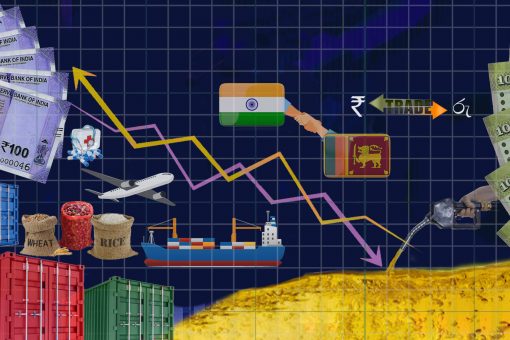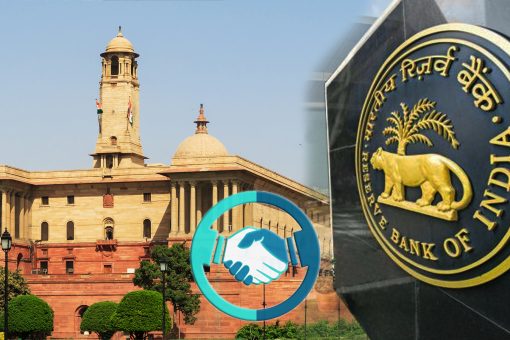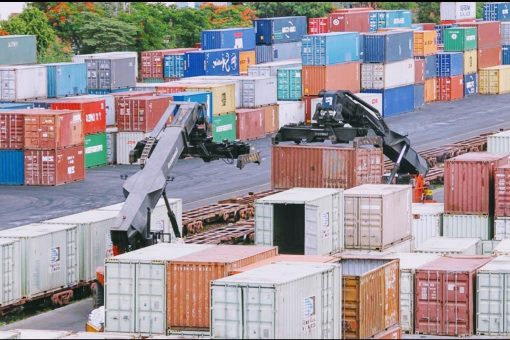
A Trillion Rupee Package for Sri Lanka
A Trillion Rupee Package for Sri Lanka
Sri Lanka, our neighbour, is in a serious crisis. It has come from a series of both internal actions as well as external activities in political, economic, and social dimensions.
As on date, the Central Bank of Sri Lanka has taken some decisive economic steps for the near-term, medium-term, and long-term.
A collective effort and expertise of India and Sri Lanka will have an impact on both nations.
Economic dimensions need to be tackled effectively, certainly, and as quickly as possible. The political and social spinoffs will come in due course.
India needs to extend a One Trillion Rupee package as a measure of political understanding and as a neighbour. It is in India’s interest to have a prosperous neighbour with positive effects on Indian citizens as well.
The components of the package need to be as follows:
1. It needs to be a 3-year package to provide assurance to Indian, Sri Lankan and Global Communities based on mutual trust and written agreements and International covenants and collaborations.
2. In this year, for next 12 months, India and Sri Lanka agree that Sri Lanka’s short-term obligations in Foreign Currency be converted to 3-year, 5-year and 7-year obligations with agreed timelines.
3. For next 12 weeks, Indian and Sri Lankan business entities are given working capital in Indian Rupees and Sri Lankan Rupees at an agreed fixed currency conversion and agreed interest rates of both nations.
4. Indian and Sri Lankan banks need to be enabled to transact in respective currencies.
5. Convertibility in India to Foreign Currency can be enabled through Indian currency and foreign exchange channels in concurrence with branches of Indian banks in Sri Lanka monitored by Sri Lankan Central Bank and the Reserve Bank of India.
India needs to strengthen itself further in an arrangement that can benefit our people. We have surpluses which can be channelled with respective Sovereign guarantees.
It needs to be “Trade, Not Aid”, which will win. A currency agreement will generate a win, win, win situation.
The idea is to make the Indian rupee and Sri Lankan rupee integrated for all transactions –
– current account
– capital account
– and as a medium to invest mutually, so that Indian and Sri Lankan people benefit to the maximum extent both in the near-term and the long-term.
Currently, India’s economy has the surpluses which the Sri Lankans need, to meet their immediate requirements and we are not far away from each other – hardly 8 hours by ship and 45 minutes by flight from the southern half of India.
It is therefore important to establish an Indo-Sri Lankan mechanism to engage in an activity to supply medicines, requirements of urgent nature, which India can fulfil for health, for senior citizens, for children and for the community which deserves it most.
India’s foreign exchange resources are above that it can have at the moment as a necessity.
India has already taken some steps as per the Foreign Ministry release.
It is therefore important to take the following further steps:
1) The Government of India should resolve that the Indian people, the State Governments, and the Central Government can engage with the crisis and turn it into an opportunity for Indian people without any exploitation or denigration.
2) The past is the past. View the present with only one week at a time and supply the essentials that they need, that they can pay for in Sri Lankan rupees or Indian rupees.
3) The Government of India and Reserve Bank of India can engage in an immediate swap of Rs 10,000 crores equivalent into Sri Lankan currency at an agreed exchange rate frozen for 14 days to 28 days for specific emergency purposes – food, medicines, fuel and essentials.
With this, the Sri Lankan Central Government can create an equivalent of Rs 10,000 crores in Sri Lankan currency at an agreed fixed rate and make it available to the Reserve Bank of India and Rs 10,000 crores of Indian currency needs to be with the Central Bank of Sri Lanka.
This needs to be exercised as convertibility on trade accounts for goods and services.
This can be immediately made available to banks in respective nations and in turn, Sri Lankan businesses can be allowed to have rupee accounts in India as well as Sri Lankan rupees and Sri Lankan banks can have accounts of Indian businessmen, both in Sri Lankan rupees as well as Indian rupees.
· “What Is a Currency Peg?A currency peg is a policy in which a national government sets a specific fixed exchange rate for its currency with a foreign currency or basket of currencies.A realistic currency peg can reduce uncertainty, promote trade, and boost incomes.An overly low currency peg keeps domestic living standards low, hurts foreign businesses, and creates trade tensions with other countries.An artificially high currency peg contributes to the overconsumption of imports, cannot be sustained in the long run, and often causes inflation when it collapses.The United States has exchange rate arrangements with 38 countries, with 14 pegging their currencies to the USD.”· “What is a Floating/Crawling Peg?A crawling peg is a band of rates that a fixed-rate exchange rate currency is allowed to fluctuate. It’s a coordinated buying or selling of currency to keep the currency within range. Crawling pegs help control currency moves, usually during threats of devaluation. The purpose of crawling pegs is to provide stability.”Source: www.investopedia.com
4) The Indian refineries can sell petrol, diesel and other fuels in Sri Lankan rupees and they can convert it into Indian rupees in India and each Sri Lankan entity can be trading in Indian rupees with Sri Lankan rupees over a period of 6 to 10 weeks, preferably at an agreed fixed rate so that there are no conversion costs other than bank fees till the crisis is mitigated. India and the Indian Government and its institutions should treat exports in Sri Lankan Rupees equivalent to international convertible currencies.
5) The Government of India and the Sri Lankan government can enter into a Memorandum of Understanding that Sri Lankan foreign exchange requirements to meet international obligations are met comfortably so that it will generate swap to US Dollars, Euros, Yen and Dirhams for both Sri Lankan and Indian rupees.
6) Further, arrangements can be made that India can use Sri Lankan rupees for current account transactions which include that Indians can have Sri Lankan rupees deposited with themselves for future usage – for visits to the island for official, diplomatic, and business purposes, and also encourage Sri Lanka to be back in the tourism business with Indian tourists visiting Sri Lanka and spending in Sri Lanka.
7) The Government of India can also exercise that Sri Lankan nationals can come, visit and stay in India and spend Sri Lankan rupees in India as well as buy Indian and take it back with them.
8) Broadly, India needs to mobilise shipments at the earliest by air or by sea, of most essential from its port, with payments guaranteed by each other and an Indian businessmen can buy what Sri Lanka has now by paying in Indian rupees, so that Sri Lanka can pay back in Sri Lankan rupees.
9) The resolution in terms of banking and finance is more important to be cool and calm with the situation on the island . There are surplus capacities in India which can be utilised for supplies over a period of time and this requires a continuous engagement.
10) Increase in the number of flights where Indian airlines and Sri Lankan airlines can increase the regularity of flights from airports convenient where people can come into India and move forward.
11) It can also be a temporary situation, where based on the affordability Sri Lankans can enjoy Indian hospitality in all the states, till the crisis is over and they can get back to normalcy.
12) Relationships extended in social terms can also mean integration of communities within Sri Lanka into communities in India, where we have surplus capacities in accommodation for welcoming improvement in relationships.
13) India and Sri Lanka need to invest immediately in ferries from the nearest points of North East Sri Lanka to South East India.
14) A temporary arrangement, which can mean that India gives certain material free of duty can also mean that personal essentials can be carried and allowed to trade in the nation to mitigate the requirements of food items or inputs to establish a supply chain into Sri Lankan SMEs. Fruits and vegetables can move more freely over ferries as well as from special consignments arranged from the ports of South India, like Krishnapatnam, New Mangalore port, or from any part of India that can get mobilised in warehouses, so that trade can get established near term, middle term and forward.
15) The swap that India can arrange is that the Indian government can direct Reserve Bank of India and banks to hold Sri Lankan long term debt from established companies of Sri Lanka, who engage in the economy of the island and this can get mitigated over a period of 10 years, or 5 to 15 years, so that Sri Lanka can pay back in Indian rupees.
This will establish the Indian rupee as a convertible in the South Asian nation but it can also extend to all South Asian Nations.








